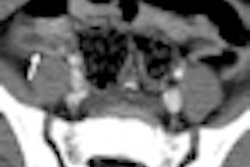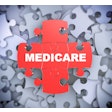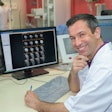Dear AuntMinnie Member,
A report issued this week by the U.S. Government Accountability Office (GAO) targets physician self-referral of advanced imaging services, finding that the practice cost the Medicare system an estimated $109 million in annual unnecessary costs.
The report analyzed referral patterns of physicians who purchased or leased imaging equipment, which is currently allowed under an exemption in the Stark anti-self-referral law. Focusing on CT and MRI, the analysis found that physicians who bought equipment in 2009 increased their use of these modalities by 67% in 2010 compared to their use in 2008.
The report tackles directly a complaint of many in radiology -- that the Stark loophole enables nonradiologist physicians to order imaging studies for economic rather than clinical reasons. Such practices undercut efforts to reduce unnecessary Medicare spending, the argument goes.
Find out what tools the GAO report recommends to help identify self-referred imaging studies by clicking here, or visit our Imaging Leaders Digital Community at leaders.auntminnie.com.
Calling all residents
It's no secret that residents are the future of radiology. The education and training they undergo today will shape the quality of care that all of us receive tomorrow.
It's in that spirit that we're pleased to launch our new Residents Digital Community, a special section of AuntMinnie.com devoted to residents' issues. Located at residents.auntminnie.com, it offers a wealth of resources designed to help residents complete their training and advance their careers.
This week we're highlighting an article on professionalism in the world of Facebook. The rise of social media has presented new questions for all radiology professionals, but many are uniquely pertinent to residents as they try to maintain separation between their professional and personal lives.
Should you "friend" your program director? What should you do if you see a colleague post something unprofessional on a social media site? And what about potential HIPAA violations when patient information is posted online?
Learn more by clicking here, and stay tuned for more thought-provoking content.
More ASTRO news
It was the conference that a superstorm couldn't shut down. The American Society for Radiation Oncology (ASTRO) wrapped up its annual meeting yesterday in Boston, and although Monday's proceedings were cut short by Hurricane Sandy, the conference largely stuck to its scheduled agenda.
You'll find our ASTRO coverage in our Radiation Oncology Digital Community, where featured articles include an overview of a talk by ASTRO President Dr. Michael Steinberg on the challenges facing radiation therapy providers. Dr. Steinberg sees seven "megatrends" that are shaping the field; find out what they are, and how providers should adapt, by clicking here.
In other ASTRO coverage, read about a study that evaluated the use of stereotactic body radiation therapy for prostate cancer patients. Researchers from Swedish Cancer Institute in Seattle found that use of the technology yielded excellent cancer-free survival rates, although there were some side effects. Read more by clicking here.



















